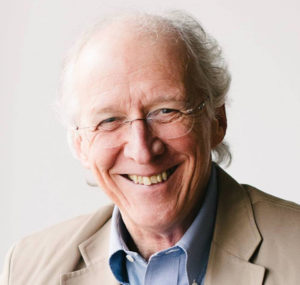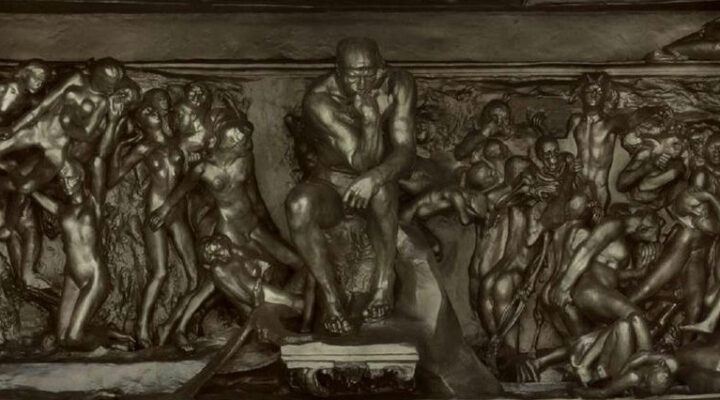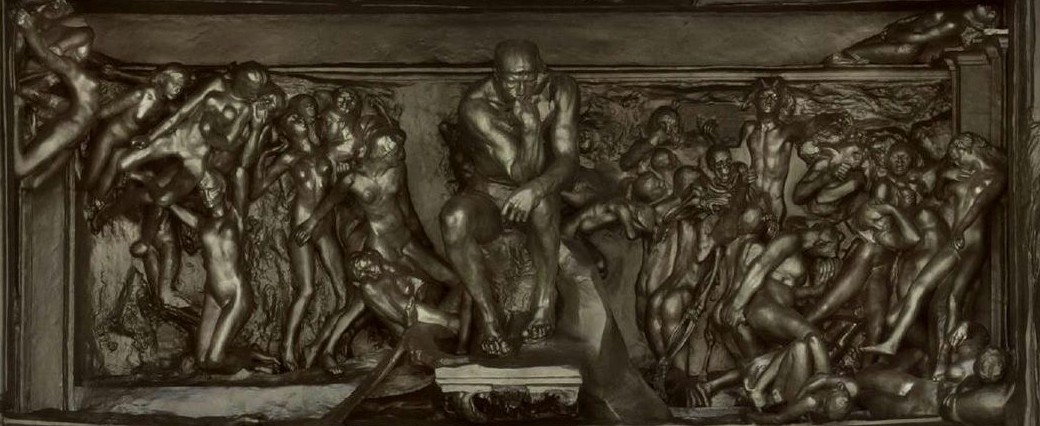Few topics enflame conservative evangelicalism’s self-righteous ire like the topic of abortion. We’ve all seen social media posts from friends that depict or describe abortion procedures in the most graphically violent ways in order to shock us.
Who could possibly be in favor of violently dismembering the most helpless among us? The Democrats, of course, they say.
No matter what candidate the Republican Party nominates, many conservative evangelicals assume that to withhold a vote for a Republican politician is to vote for the inhumanity of violence toward babies. And thus, the conservative evangelical conscience is bound to empowering the Republican Party, while Democrats are demonized as inhumane.
The inhumanity of the lake of fire
Of course, nothing brings cool-headed mindfulness to a conversation like the dread of eternal conscious torment. While there has been a growing intrigue among some Christians in the idea of ultimate redemption — the teaching that everyone has been reconciled to God and will one day be fully healed by love and accept their reconciliation — there are more who believe in annihilationism — the idea that all non-Christians will be punished in the afterlife by a literal death of ceasing to exist.
“Nothing brings cool-headed mindfulness to a conversation like the dread of eternal conscious torment.”
But the overwhelming majority of conservative evangelicals in the United States believe in eternal conscious torment — the idea that all who do not accept the evangelical theology of penal substitutionary atonement will be punished for all eternity in the torments of a lake of fire and brimstone that’s even more terrifying than hell itself.
To reflect the pro-life movement’s apparent affinity for utilizing graphically violent language, this means that billions of humans will be writhing and flailing while screaming and gnashing their teeth as fire and brimstone engulf their skin and worms crawl in and out of their bodies that were designed specifically and exclusively to feel the most infinite measure of physical pain to the fullest degree possible for all eternity, all while conservative evangelicals sing songs and receive pleasures forevermore.
The way conservative evangelicals in the pro-life movement think about abortion in light of that reality becomes an exercise in mental gymnastics that destroys the humanity of us all, as well as the humanity of God.
Original sin and aborted babies
Conservative evangelicals in the pro-life movement believe life begins at conception, and therefore conception is the birth of the soul. So whenever death happens after conception, their theology teaches that the soul will spend eternity either in heaven or hell.
They also believe in the doctrine of original sin, which teaches that all humans, as physical descendants of Adam, inherit the sinful nature and death that were introduced into the cosmos through Adam in the Garden of Eden. Even many evangelicals who accept evolution often figure out some way to uphold this idea of original sin, despite the absence of a universal ancestor.
So the question that gets raised is whether original sin would condemn aborted fetuses to an eternity in hell before they ever took a breath.
“For those who believe in original sin and eternal conscious torment, the eternal destiny of an aborted fetus creates a quite disturbing theological conundrum.”
Would a blastocyst soul that dies three days after conception with no consciousness suddenly wake up with a fully developed human body burning in eternal conscious torment? One might assume that even the most inhumane among us wouldn’t imagine or accept such a fate for anyone. But for those who believe in original sin and eternal conscious torment, the eternal destiny of an aborted fetus creates a quite disturbing theological conundrum. Do you reject your theology in the embrace of your humanity? Do you suppress your humanity while grasping on to your theology? Or do you reconsider your theology?
What Christians throughout history have said

Stained glass depiction of St. Augustine
St. Augustine, who coined the term “original sin” in the fourth century, argued that infants are held by “the guilt of original sin,” and concluded that infants who die “without being baptized will be involved in the mildest condemnation of all. That person, therefore, greatly deceives both himself and others, who teaches that they will not be involved in condemnation. … Accordingly, also the Lord himself (wishing to remove from the hearts of wrong-believers that vague and indefinite middle condition, which some would provide for unbaptized infants — as if, by reason of their innocence, they were embraced in eternal life, but were not because of their unbaptized state, with Christ in his kingdom) uttered that definitive sentence of his, which shuts their mouths: ‘He that is not with me is against me.’”
So for Augustine, all fetuses and babies who die without being baptized will experience a mild form of eternal conscious torment, whatever that possibly could mean, which would include all aborted fetuses.

St. Fulgentius
Similarly, the church bishop St. Fulgentius argued in the fifth century that “children who either begin to live in the womb of their mothers and who die there or, already born from their mothers, pass from this world without the Sacrament of Holy Baptism … must be punished with the endless penalty of eternal fire. Even if they have no sin from their own actions, still, by their carnal conception and birth, they have contracted the damnation of Original Sin.”
John Calvin taught a similar concept regarding “even infants bringing their condemnation with them from their mother’s womb” because “they have the seed implanted in them. Nay, their whole nature is, as it were, a seed-bed of sin. … Infants who are to be saved (and that some are saved at this age is certain) must, without question, be previously regenerated by the Lord … they must either remain unaccepted and hated by God, or be justified.”

John Calvin
Calvin differed from Augustine in that he believed God could save those God elected to save “at any age, without distinction.” But for babies of non-Christian parents, Calvin argued, “The children of the reprobate, whom the curse of God pursues, are liable to the same sentence” because Isaiah “does not speak of innocent children, but of flagitious and unprincipled children.”
He concluded: “I again ask how it is that the fall of Adam involves so many nations with their infant children in eternal death without remedy unless that it so seemed meet to God? Here the most loquacious tongues must be dumb. The decree, I admit, is dreadful; and yet it is impossible to deny that God foreknew what the end of man was to be before he made him, and foreknew, because he had so ordained by his decree. … For why, pray, should it be made a charge against the heavenly Judge, that he was not ignorant of what was to happen?”
Modern pop Calvinists on the eternal destiny of aborted fetuses
Given how so many modern conservative evangelical pop-Calvinists idolize the likes of Augustine and Calvin, what are they saying regarding the eternal fate of aborted fetuses?
Chrissy Stroop tells the story of one of her former Christian school teachers, who was asked about the fate of aborted babies. She observed: “Mr. Henderson began to choke up and shed a few tears. The ‘logic’ of his extreme Calvinist worldview compelled him to believe that miscarried and aborted ‘babies’ wind up in hell. But he was clearly deeply troubled by the thought. Something in him must have felt that God sending aborted babies to hell was horrifyingly unjust, and yet Mr. Henderson could not shake the ultimate source of abuse in Calvinist thinking — Calvinism’s insistence that whatever God does is good by definition, regardless of our doubts and moral intuitions.”
But other conservative evangelical Calvinists do not share the conflicted conscience Mr. Henderson had. According to Reformation 21: “A type of sentimentalism can enter into our thinking that isn’t actually grounded in God’s word or his character. The Reformed doctrine of original sin, which usually includes imputed guilt, essentially means that there is no such thing as an innocent child in the eyes of God. All infants are guilty and corrupt before God, at conception, because of original sin. Those who go to hell are not there simply because of what they did, but because of who they are.”
Their concern about opening the door for infants to spend eternity in heaven rather than burning in hell is that “people have made similar arguments for universalism, annihilationism and homosexual unions.” And so they conclude, “Once we grasp that God could, based upon his righteous nature, and because infants are guilty in Adam (i.e., original sin), send these children to hell, we are faced with the true horror of abortion.”
John Piper agrees with Augustine and Calvin about their inherited guilt through original sin, affirming, “I do believe they are in a sinful condition when they die. My view is not based on how cute or innocent they are.”
“I do believe they are in a sinful condition when they die. My view is not based on how cute or innocent they are.”
But Piper recognizes the conundrum this view creates for conservative evangelicals. For most evangelicals, fetuses who die have a 100% chance of spending eternity in heaven. But if they are born, especially in families who are willing to have an abortion, the percentages going to heaven after death drastically reduce. Would it not, under those odds, be an act of mercy to abort babies when they have a 100% chance of avoiding eternal conscious torment rather than letting them live and rolling the dice in a game of life where their chances of going to heaven after they die fall to very slim?

John Piper
To this question, Piper says, “If Christians were to buy the argument, ‘Sure, that is fine. You can go ahead and take the lives of infants in the womb because they are going to go to heaven,’ then we can just go around and kill all the 1-year olds and guarantee they go to heaven — kill all the 2-year-olds and guarantee that they go to heaven — and we will draw the line maybe around, I don’t know, 3 or 4. That is a horrific position to take, and it is a big deal.”
Despite his views that all babies carry a guilt deserving of eternal conscious torment, Piper ultimately believes all babies who die, including through abortion, will go to heaven after death. Yet he also believes the vast majority of those who are born will burn in hell. Still in the face of those drastically reduced odds, he says abortion is wrong.
Southern Baptists and the age of accountability
The reason John Piper draws the hypothetical logical line for killing children at 4 years old is that many evangelicals believe in the “age of accountability,” which is the idea that everyone who dies prior to some undefined age where they have the mental capacity to understand and reject penal substitutionary atonement gets to heaven. But at some point during one day in everyone’s life, a switch supposedly gets flipped to where suddenly they’ll burn in hell forever if they die without embracing evangelical theology. Whether that happens when the kid wakes up one morning, in the middle of their lunch, or while they’re playing with their Legos is unknown. But it’s a big deal to conservative evangelicals.
Southern Baptists debated how Calvinism and the age of accountability applies to infants in a Calvinism Advisory Committee that was set up by Frank Page, former president of the SBC’s Executive Committee, in 2013. According to their report, “Most Southern Baptists believe that those who die before they are capable of moral action go to heaven through the grace of God and the atonement of Christ, even as they differ as to why this is so.”
Some members such as Steve Lemke, who was then provost at New Orleans Baptist Theological Seminary, argued that “children are not morally accountable until ‘they are capable of moral action.’”
“Heaven will be filled with those who never grew to maturity on earth.”
But Calvinists on the committee, such as Al Mohler and Danny Akin, had written in 2009: “We are born marked by original sin, and thus we cannot claim that infants are born in a state of innocence.” Still, they argued that the Bible teaches that judgment will be based on what we do “in the body,” and concluded that “heaven will be filled with those who never grew to maturity on earth.”
John MacArthur on abortion as the Great Commission
Ironically, what becomes even more problematic for conservative evangelical views on abortion than their theology of hell is their theology of heaven.
John MacArthur posed the question: “When you think about the fact that heaven is going to be populated by people from every tongue and tribe and nation, as it says in the book of Revelation, how could that happen? Because the gospel hasn’t necessarily in every era of time gone to every tongue and tribe and nation.”
When many Christians think about Revelation’s vision of people from every tongue, tribe and nation being in heaven one day, they tend to see it as the result of the gospel spreading through the Great Commission where Jesus told his disciples to make disciples as they go into all the world.
But MacArthur doesn’t see the Great Commission as the catalyst for such a vision. Instead, he sees abortion and infant death as the cause. “High mortality rates in non-Christian, third world, and false religion environments produce people for heaven,” he explains. “And I think God has been gathering little ones from every tongue and tribe and nation around the world throughout human history.”
To women who have had an abortion, MacArthur says, “When you aborted that baby, although it was sinful to do that, it was wrong to do that, that baby went immediately into the presence of the Lord. The worst that you could do brought about the best that could ever happen to that life.”
“The best illustration I know of (grace) is God sovereignly, graciously saving infants that die or fetuses that are aborted.”
And thus, MacArthur concludes that “the best illustration I know of (grace) is God sovereignly, graciously saving infants that die or fetuses that are aborted.”
The lost humanity of the conservative evangelical pro-life movement
Noticeably absent in this article have been any reflections by women. Their concerns, fears and perspectives are nowhere to be heard. Other than the reflections of Chrissy Stroop, every quote has been from powerful men sharing their theological theories either to justify their God burning fetuses for eternity while claiming that Democrats are the inhumane ones, or to attempt to wiggle out of the death chamber they’ve theologically boxed themselves into.
But at least MacArthur is honest about his theology. According to MacArthur’s conservative evangelical theology applied in the pro-life movement, abortion is the greatest evangelistic tool there is. In fact, it’s the mechanism by which Revelation’s vision of heaven becomes fulfilled. So by opposing abortion, evangelicals are dramatically increasing the number of souls who will eventually burn for eternity who could’ve been in heaven for eternity, and they are also working against the fulfillment of the Great Commission.
Of course, they counter that by saying Christians are responsible to save unborn babies despite whatever eternity those children grow up to have. But what kind of totally screwed up God do you have to have that would set up this scenario that requires his followers to rescue fetuses that would’ve spent an eternity in heaven so they can be kept alive long enough to be able to burn in hell? That is certainly not a God who became a human baby, because a God who strips us of our humanity would be inhumane.
The entire conversation is nonsense. It’s impossible to take the least bit seriously. And it totally ignores the rich conversations we could be having by listening to the cries of women all across our country who have very real concerns about their bodies and their futures.
A belief in eternal conscious torment ruins the possibility of having any humane conversations because it’s fundamentally inhumane to the most infinite degree. Drop that concept, and then maybe we can talk about abortion with a modicum of humanity and common sense. Until then, I can’t take anything conservative evangelicals in the pro-life movement have to say about abortion the least bit seriously.

Rick Pidcock
Rick Pidcock is a 2004 graduate of Bob Jones University, with a bachelor of arts degree in Bible. He’s a freelance writer based in South Carolina and a former Clemons Fellow with BNG. He recently completed a master of arts degree in worship from Northern Seminary. He is a stay-at-home father of five children and produces music under the artist name Provoke Wonder. Follow his blog at www.rickpidcock.com.
Related articles:
Infants-in-hell question concerns editor
Heaven-or-hell theology may be simple, but it is neither biblical nor morally defensible. What’s the alternative? | Opinion by Alan Bean
In ‘Hamilton,’ King George has Calvin on his side | Analysis by Rick Pidcock


